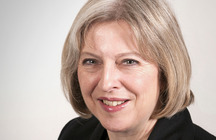Below is the text of the speech made by Theresa May, the Prime Minister, at a reception in 10, Downing Street, London on 29 August 2017.
I am delighted to welcome you all to Downing Street today – and to have this opportunity to celebrate what I believe has been a watershed for women’s sport in our country this summer.
In doing so, it is a great honour to welcome two of our teams whose achievements have been such an important part of this breakthrough moment.
Our England Women’s cricket team whose dramatic nine-run victory over India at a packed out Lords secured the Cricket World Cup.
And our England women’s rugby team who earlier this Summer beat New Zealand in New Zealand to become the world’s No1 team – and whose breath-taking World Cup final in Belfast on Saturday night had the nation on the edge of its seat.
And while I know our rugby team will be disappointed with the result on the pitch, your result off the pitch, the legacy of everything you have achieved – together with our cricketers, our footballers, athletes, hockey players and of course Jo Konta’s spectacular run at Wimbledon – will change the way that women’s sport is seen in our country for years to come.
So I am delighted that you are all here today – and not just the players who have worked so incredibly hard – but also the coaches and backroom teams who have supported you, and some of your families and friends too, whose own sacrifices have been such an important part of everything you have done.
I am incredibly proud that, with you, our nation can call on such wonderful ambassadors for young women and girls today.
And I hope that with your support we can seize this opportunity to grow women and girls’ sport in communities across the length and breadth of the land.
We have got lots to build on.
Our Sports Strategy is already targeting resources at those less likely to be physically active, with Sport England setting out seven new investment programmes that I hope can really help increase women’s participation in sport.
While Sport England’s award-winning campaign called This Girl Can has already seen 11,000 organisations register as supporters and 1.6 million women saying they have now started or restarted sporting activity.
And I am seeing some of this growth in women’s grassroots sport in my own role as Patron of the women’s team at Maidenhead and Bray Cricket Club and as President of the Wargrave Girls Football Club.
But if we are really going to seize the opportunity of this moment I believe we need to go further in two key areas.
First, we need to improve the representation of women on the governing bodies of our sports.
This isn’t just right in terms of creating better governance for any organisation – it is also right in terms of growing women’s sport.
For too long, in too many sports, there hasn’t been enough attention paid to the women’s side of the sport – and more women on boards can help to change that.
So our sports governance code now includes a target of at least 30 per cent gender diversity on boards.
And it is now mandatory and applies to any organisation of any size or scale seeking funding from Sport England or UK Sport.
As of last year, just under half of NGBs did not yet meet this requirement.
But they are going to have to set out a plan to do so by October 31st this year.
Second, we need a radical change in the status and profile of our women’s sports – especially team sports – so that women’s sporting success is routinely held in the same high esteem as that of men’s.
Developments like the Women’s Premier League in football and the growing professionalisation of team sports are important steps forward.
And it is welcome too that the gender prize money gap in sport is closing with 83 per cent of sports now rewarding men and women equally.
But 83 per cent isn’t good enough.
We need to go further – and broadcast and news coverage has a key role to play.
And again your achievements this summer can be a major catalyst for progress.
Channel 4’s hugely successful coverage of the Euros helped to galvanise support for the Lionesses – just as the BBC’s coverage of the World Cup had done in 2015.
The Cricket World Cup Final at Lords was sold out and had a global television audience of over 100 million.
While the Rugby World Cup Final saw another packed stadium in Belfast on Saturday night and the largest ever TV audience for women’s rugby in the UK – with the game rightly shown in a prime time slot on ITV1.
This has generated huge momentum – and I hope we can capitalise on it, so that women’s sport on TV and on the back pages of our newspapers becomes the norm and not the exception.
Today we celebrate two teams, and two fantastic sets of athletes, but you are much more than that.
You are trailblazers, ambassadors, pioneers and now a part of British sporting history.
So together, let’s ensure that your legacy is not just in Britain’s sporting history – but also a fundamental part of shaping Britain’s sporting future – for millions of young women and girls, for generations to come.
